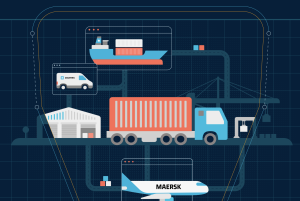 Government is introducing an electronic tender portal for public sector contracts to improve the supply chain.
Government is introducing an electronic tender portal for public sector contracts to improve the supply chain.
President Jacob Zuma said the portal system would be phased in from April, however, it this has been pushed to May.
Government is taking action to improve the performance of its supply chain management system to “prevent fruitless and futile expenditure as well as corruption”.
A centralised supplier database would also be introduced this month. It is a central list of approved suppliers that have been vetted for cost and quality, managed by the chief procurement officer, said Treasury. Once it is fully functional, it will replace around 600 supplier databases that currently exist.
The list is made up of 37 contracts covering more than 8000 line items with an estimated annual value of more than R16-billion. The Treasury said the list of nationally negotiated contracts would be expanded over the next three years.
In February the government highlighted shortcomings in its procurement and supply chain processes, saying they needed to be made more efficient.
Annual losses to corruption in all spheres of government are estimated at R30-billion, emphasising the need for a tightening of systems.
The public sector spent R500-billion on goods and services and construction work in the 2013-14 fiscal year, a supply chain management (SCM) review released by the Treasury showed. For 2015, public sector analysts have pegged government’s third-party spend as high as R540-billion.
The Treasury review, by the Office of the Chief Procurement Officer (OCPO), focused on all aspects of the process of acquiring goods and services – hence the use of the term supply chain management.
The review admitted that there were numerous SCM inadequacies, including staff who did not understand the importance of what they did; inadequate skills; high staff turnover; no separation of responsibilities between technocrats and political office-bearers; no consequences for those who failed to perform appropriately; cumbersome regulations and policies; and the difficulty of balancing transformation with getting work of the right quality at the best prices, on time.
“Often, we pay the highest prices and one part of government does not know how much the other part of government pays for goods and services,” said Zuma. “The bulk of negative audit opinions arise from potentially avoidable procurement violations. This is also an area where corruption or allegations of corruption, occur.”
The Treasury review proposed a number of reforms to help the public sector get value for money and ensure good-quality service delivery.
They included consolidating legal instruments applicable to supply chain management under one piece of legislation, similar to the Public Finance Management Act or the Municipal Finance Management Act.
The government is also reviewing existing contracts in various sectors including banking, information and communication technology, professional services, security services, school textbooks and stationery.
On banking, the review said a feasibility study was being conducted to assess the cost and benefits of negotiating banking services centrally. SA’s four major banks provide banking services to more than 660 government entities. This system was fragmented, with high transaction costs, the review said.
The government is also procuring audit and financial management consulting services centrally to reduce spending on consultants, which amounts to R12-billion a year.
In future everyone in the procurement process will be required to do more.
Cabinet has approved that all accounting officers and authorities be required to include supply chain metrics in their performance scorecards and must engage with the supply chain function at a strategic level. Accounting officers will have to report on procurement plans, tenders to be advertised, tenders awarded, supplier company information, the value of each award and progress in implementing tenders.
Adapted from information originally published in Business Day


























